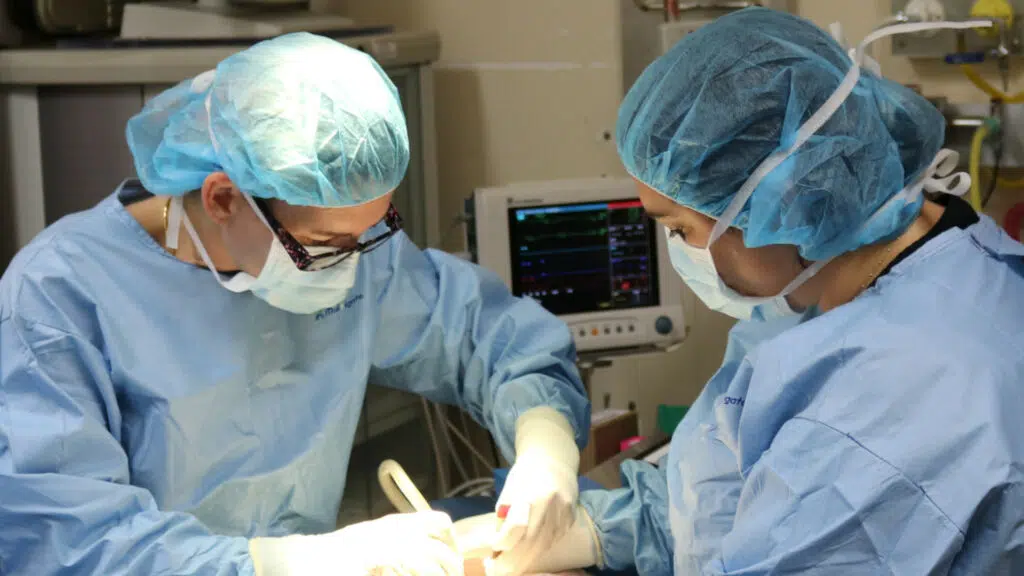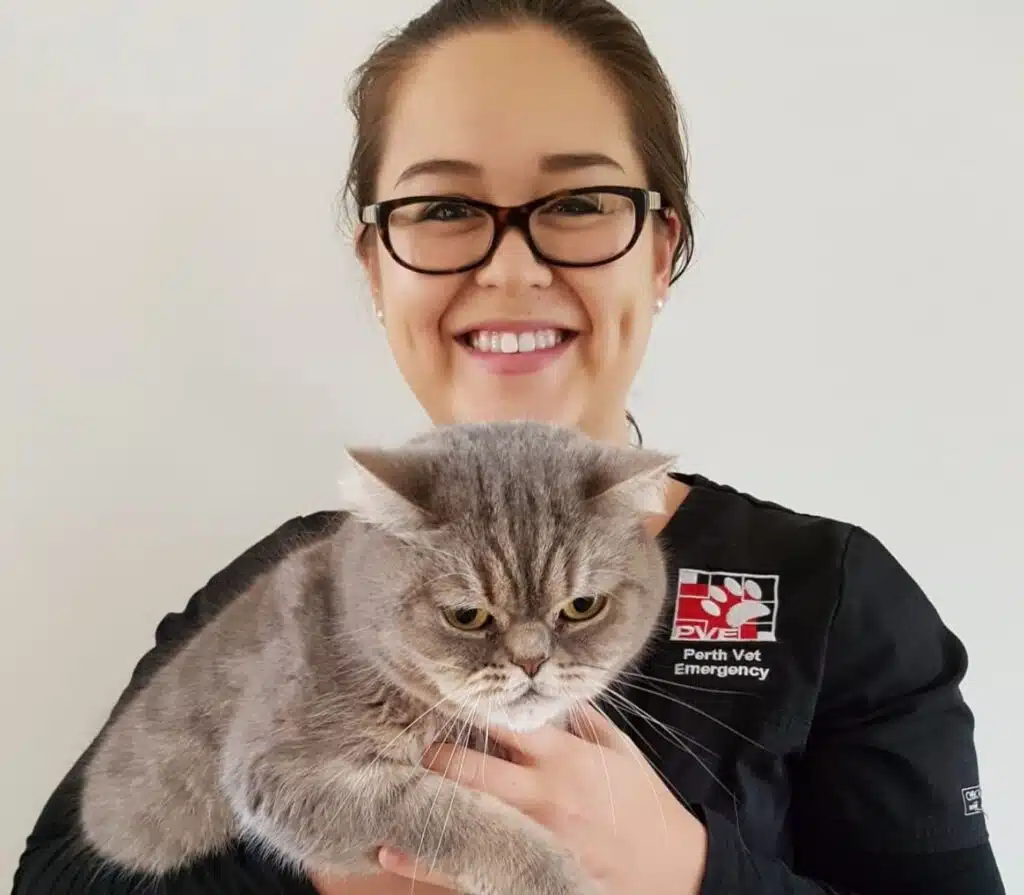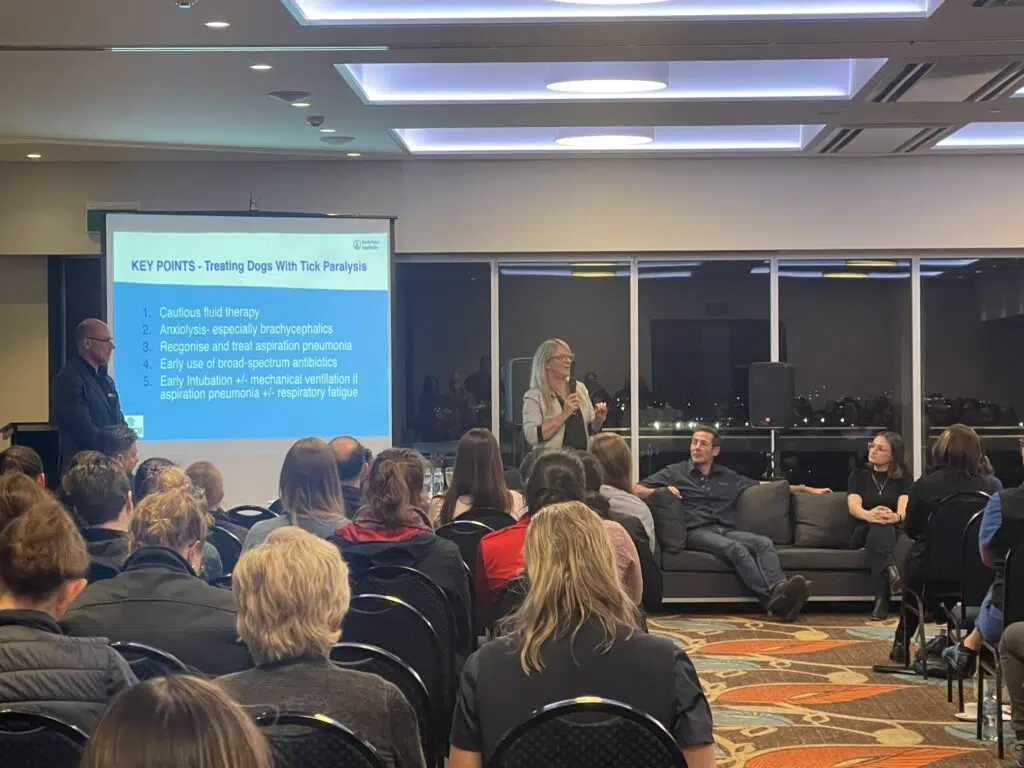Stress is something that all veterinary professionals will face during our careers. All veterinary professionals encounter and process stress differently, and some of us may already have developed methods of how to cope with stress in the workplace. In this article, we’re going to be discussing the nature of stress as a veterinary professional and how to approach stress in order to harness it as a strength. But this all starts with a statement that could be considered quite controversial among the veterinary industry…
All veterinary professionals need some degree of stress in our lives. Positive stress.
Having positive stress as a veterinary professional is something that gives us motivation, boosts our adrenaline when treating critical patients, and gets us out of bed and keen to head into the clinic or hospital. But stress isn’t all encompassing – it’s vital to be able to differentiate between positive and negative stress.
Just take a look at the image below to see how you can separate positive and negative stress. This should give you a taste of what’s happening and how we actually look at what’s going on with our negative and positive stress. Think of yourself and start looking at where you are on this stress bell curve. Where do you think your stress as a veterinary professional currently sits?
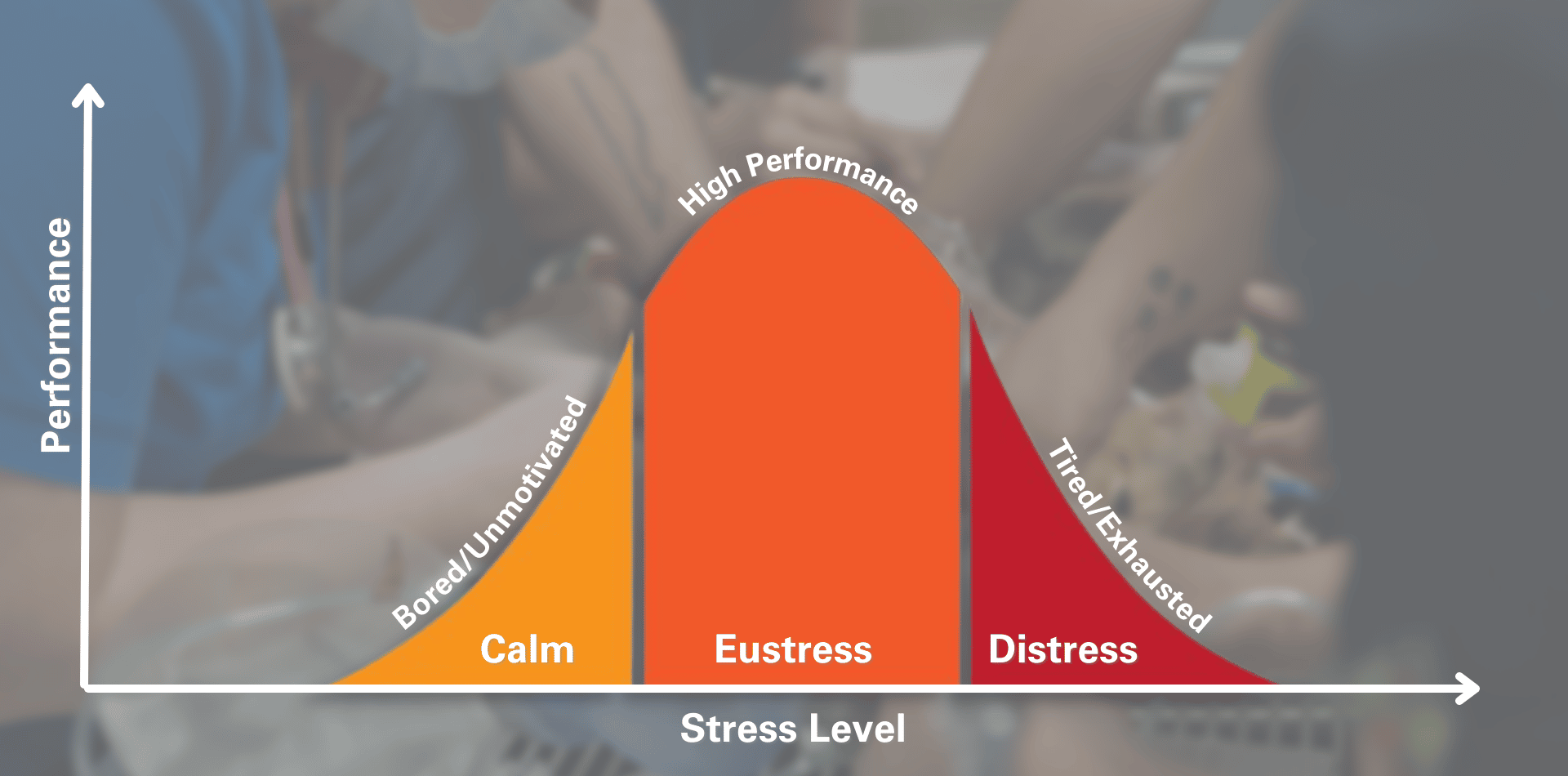
Part of negative stress within the veterinary profession can be referred to as “burnout” – something that’s regularly mentioned when veterinary professionals become overwhelmed by stress. This can cause a great deal of distress, have lasting negative effects on our performance, and lead to excessive levels of inactivity. Being at either end of the continuum above is unhealthy, but if we have a look at the stress curve as a whole, the majority of us sit right in the middle and that is where our positive stress is. That’s exactly where we can become energized by a healthy amount of stress (often referred to as eustress).
We all have an opportunity to see that we can improve and learn from what we’re doing about stress. For veterinary professionals, it’s important to be willing to learn and speak openly about stress. This can be challenging, but on the upside all veterinary professionals possess valuable skills that can be leveraged to use a healthy amount of stress to your advantage.
Using Positive Stress as a Veterinary Professional
When taking a look at eustress – which is where our stress can actually empower us – that’s exactly where we want to try maintain ourselves. Add an excessive amount of stress and you may find yourself slipping over the other side of the curve into distress. This can lead to significant concerns such as fatigue, exhaustion, and a variety of stress-induced health issues. Additionally, a very small percentage of people may result in “burnout“. This term is being used broadly around in the media to describe excessive stress, but will only truly appear in a small number of individuals. It’s important to be mindful of the language you’re using when talking about stress and watch that it doesn’t unintentionally have a negative impact on people.
When harnessing positive stress to your advantage, the model that we want to build and focus on is a model of strength. Avoid building a deficit model and looking at the gaps and things that have gone wrong. This can be an area where a lot of veterinary professionals come undone. Instead, flip your viewpoint. Look at the things that are actually working, hone in on where your strengths are, and build a platform on these.
There will always be gaps in your skills, but these can be filled in at a later date. So whether you’re starting a practice from scratch or performing a new operation, you’ve got to start with the fundamentals that are working. This is similar to your own health and your own stress and will aid you in looking after your own stress levels.
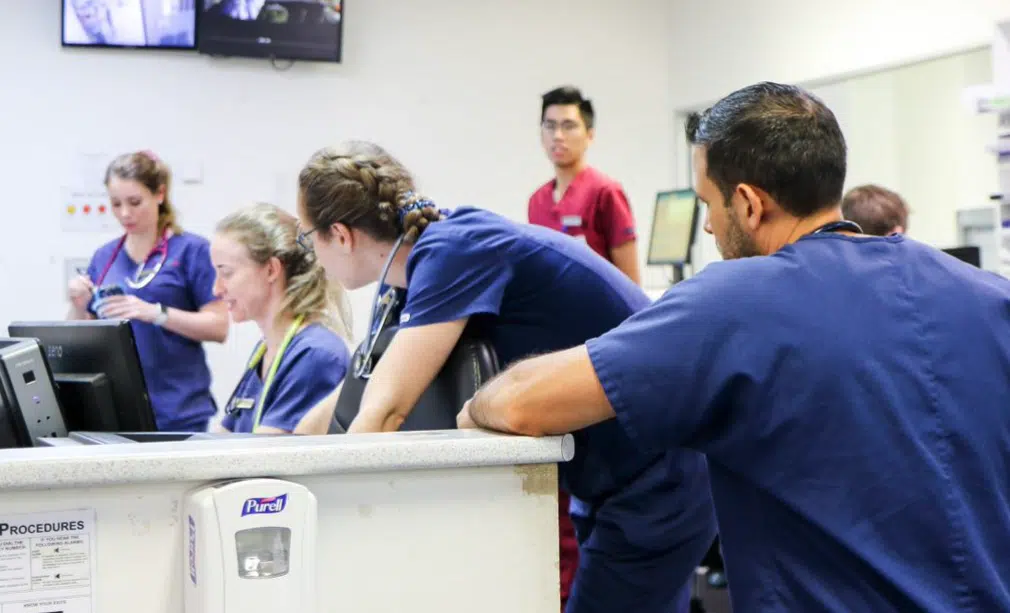
There are three main areas that will significantly influence your ability to utilise stress, which have been demonstrated widely through a variety of research at The Barrington Centre. Studies have frequently found that there are three main areas of influence, which are:
- How you see yourself – your own self-esteem and self worth.
- Your language and how you manage your own internal critics.
- Your workplace, relationships, and connections.
And so we need to look at how all three are influencing your stress levels? We’ll take a deeper dive into each of these and how you can use each of them to influence and harness your own stress as a veterinary professional.
Self-Esteem and Self Worth
When we look at our self-esteem and the influences of this, one of the biggest impacts is the way in which we think. And so what’s important when considering self-esteem is to look at the profile of veterinary professionals as a whole. It comes as no surprise that many veterinary professionals are high-performing and could be considered to be “perfectionists”. Many veterinary professionals also have big critical inner voices, which can be a great asset, but it can also be your worst enemy.
And that’s where this pattern of thinking really needs to be looked at and actively monitored by you. Because at the end of the day, you are the only one that can control your own thinking. No one else or no event can control that. They can certainly try and influence you, but ultimately you have 100% control over what to say, to feel, or accept what is going into your brain.
Focusing on self-worth will help you to achieve the outcomes you want. Take a step back and ask yourself these questions: “How do I feel about myself? Have I got a good belief in myself? Do I actually feel like I can do my job?”
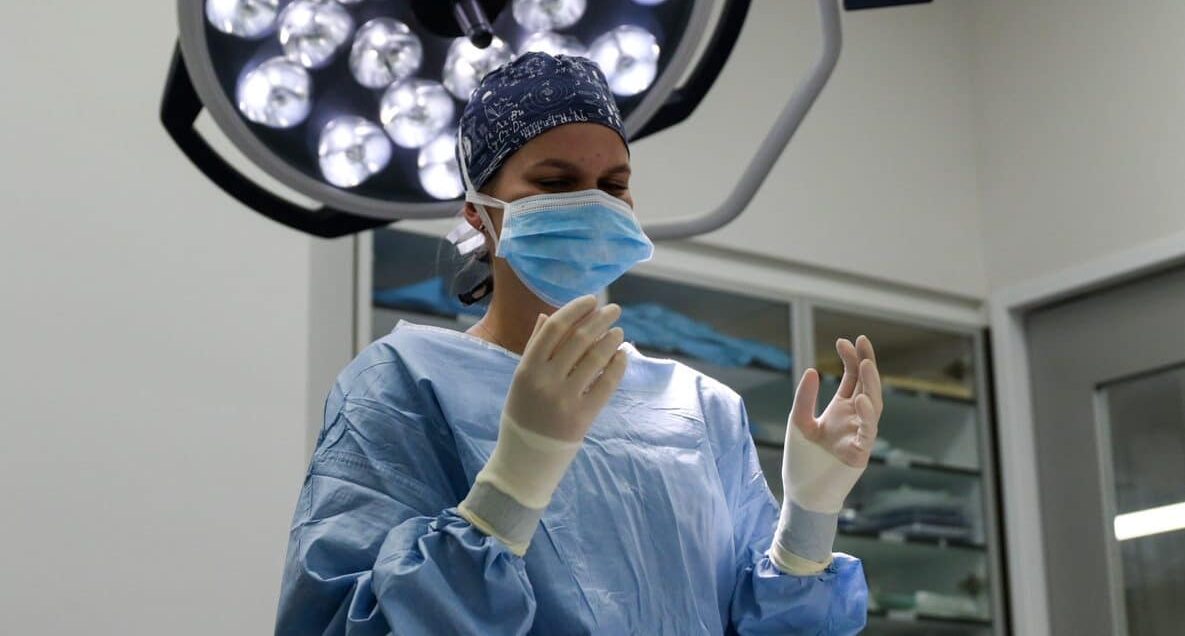
Negating Self-Criticism
Part of building your own self worth is being able to negate the self-criticism or the negative talk, something that many of us are guilty of due to imposter syndrome in the veterinary industry. After all, it’s all too easy to doubt your own skills, even for experienced and highly successful veterinary professionals. Many of us are affected by overly harsh self-criticism. It’s the voice in the back of your head that says, “something went wrong with that case” or “I could have done that better” or “I didn’t anticipate this“.
What happens is that all of a sudden, these constant negative voices can insert themselves into your thinking. But that’s fine provided you’re able to limit and filter the amount that comes through, and place your own self-worth first and foremost. Approach this self-criticism with a healthier, less perfectionist mindset. Rather than beating yourself up, instead acknowledge that there will always be situations where you can learn and do better, rather than listening to the harsh self-critic that incorrectly tells you that you’re hopeless.
Changing Your Language
Criticism can be a bit like a broken record, constantly wearing yourself down. You can either take the steps to change the record and get some constructive commentary going, or you may find yourself spiralling into negativity. This is where “absolute statements” come into play: the “I should have“, “If I did…“, “I must have…“, “I always…“. These statements in particular can really beat you up, because what they’re saying is that no matter what you do, you’re never good enough.
So what we want to do is actually change your language – the shoulds, the musts, the always – get rid of all of those absolute statements. These are statements that don’t allow you or encourage you to actually change. If you get rid of these statements, you’ll become freed up by your own brain, because you’ll be able to actively make changes or say, “Yeah, that didn’t work“, without negatively critiquing yourself.
Why is it important to remove “Absolute Statements”?
Where this becomes especially important to actually listen to where these absolute statements are appearing, as they can sneak in very easily. Listen to those absolute statements that go on in your brain when you’re talking to your colleagues and talking to your team. And then start the change by trying to drop them completely.
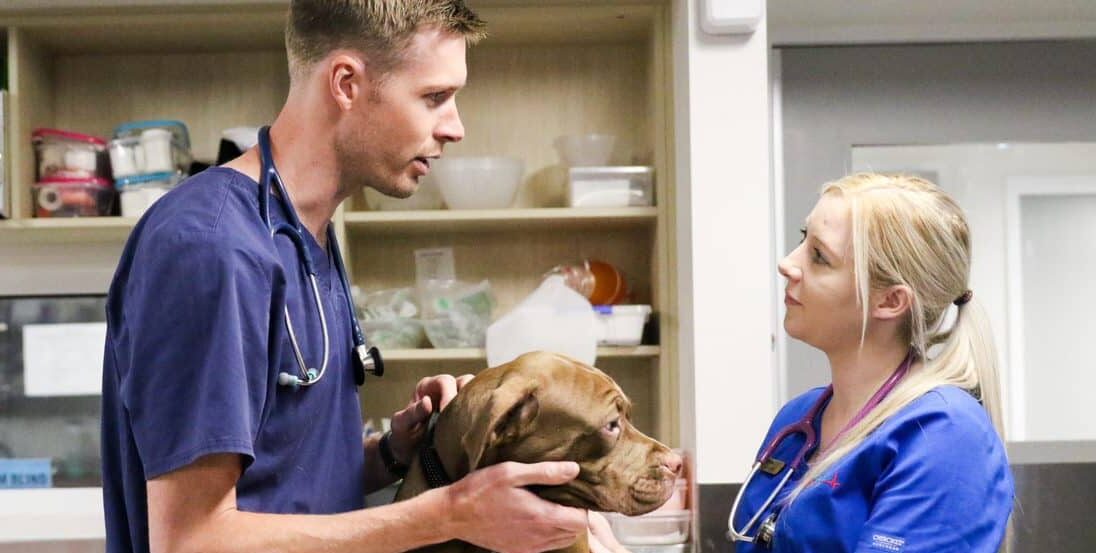
If you’re having trouble changing your own language or picking up when you use absolute statements, have a bit of fun with your team and ask your colleagues to pick them up for you. Get your team to actually do something noticeable (i.e., a physical action) as soon as you start saying the nevers, the shoulds, the musts, and the always. This will help bring it into that conscious state for you, which is often unconscious in your language paradigm. Raising them to a conscious level so you can hear them yourself in order to change will help you form newer, and healthier, patterns of language.
What Influences Your Stress as a Veterinary Professional?
Building self-esteem is only one part of the equation in harnessing stress to your advantage. The second part of what influences you staying with the positive stress rather than the negative, are those are the two critics that often sit on our shoulders.
The first critic is comparative – looking at your own skills, your own achievements and successes, and immediately comparing them to others. This is particularly prevalent if you’re a perfectionist and even more if you have high expectations of yourself (which would be the vast majority of veterinary professionals). This voice will constantly be asking, “Am I as good as him? Am I as good as her?” What happens to many veterinary professionals is falling into the habit of comparing themselves to others, which will often make you second guess whether you’re good enough.
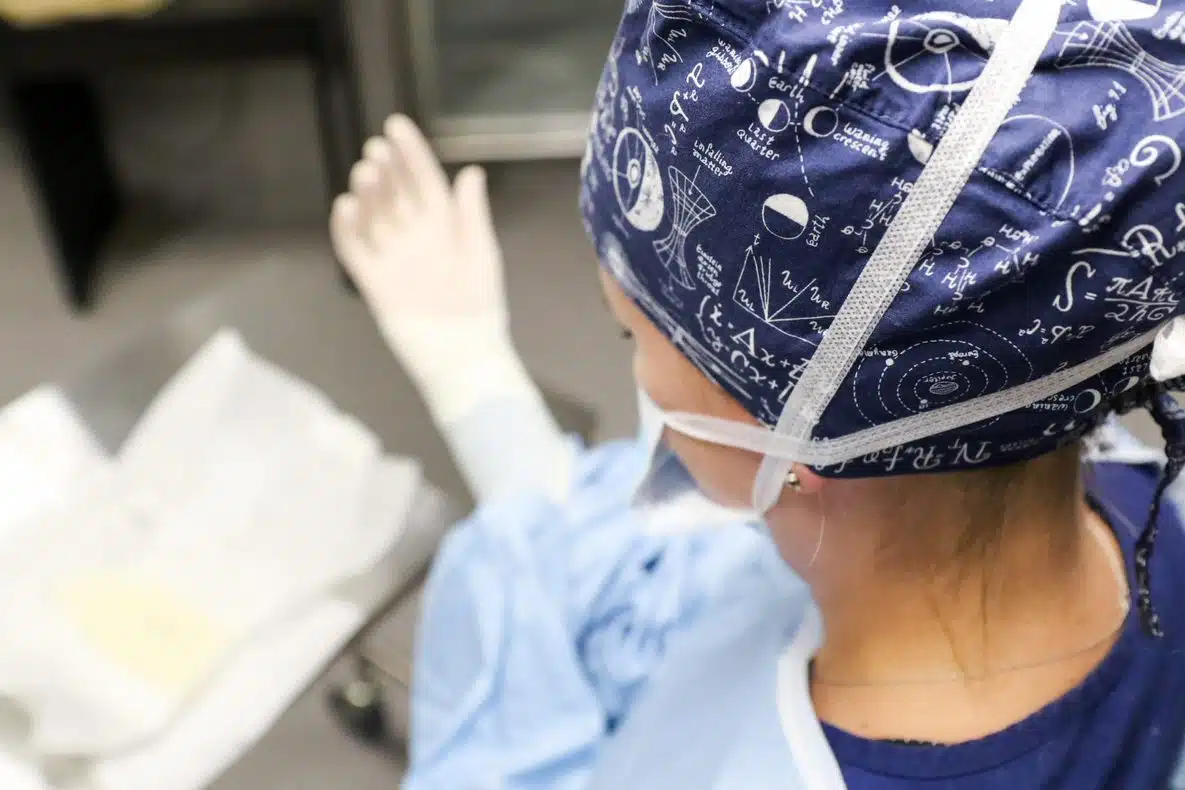
How Silencing the Internal Critic Helps Your Stress as a Veterinary Professional
And the second is the internal critic – the one that we’ve discussed earlier in this article. And the thing about the inner voice, if it gets out of control and it gets ramped up, is it’s always waiting for something on the outside to make you feel happy. The trouble is nothing will ever satisfy that level of happiness and absolute perfection that it’s expecting. So in order to build positivity, flip both the comparative and the internalized voices of criticism into looking at your achievements. And this can start with something as simple as looking at the small steps.
At the end of a day at work, take a look back out of everything that you feel went bad, and instead hone on the one thing that went well. Because that’s what we’re trying to find and emphasise positivity. Try to find one exception to the rule that goes against those critical voices. Yes, not everything might not have gone completely according to plan, but what’s one thing I was okay about? This positive shift in your thinking will make a huge difference in how you look at your own successes.
The Positive Impact of Connections
The third and final critical aspect that aids us in maintaining a positive level of stress is our connection with people. Establishing and fostering connections can have a significant impact on not only our stress levels, but many studies have shown that it even has the ability to mitigate or reduce post-traumatic stress.
Regularly maintaining connections with others is vital. This can be loved ones or partners, family members, colleagues or friends – just someone that you’re able to trust. Fostering a meaningful and lasting connection has been proven to mitigate the risk of post-traumatic stress by up to 80%. And so for all veterinary professionals, this can be crucial. If we can actually achieve genuine connections, then the percentage of risk can be brought down through the very simple but important act of connection. This has a flow-on effect of helping people to more easily maintain their positive stress.
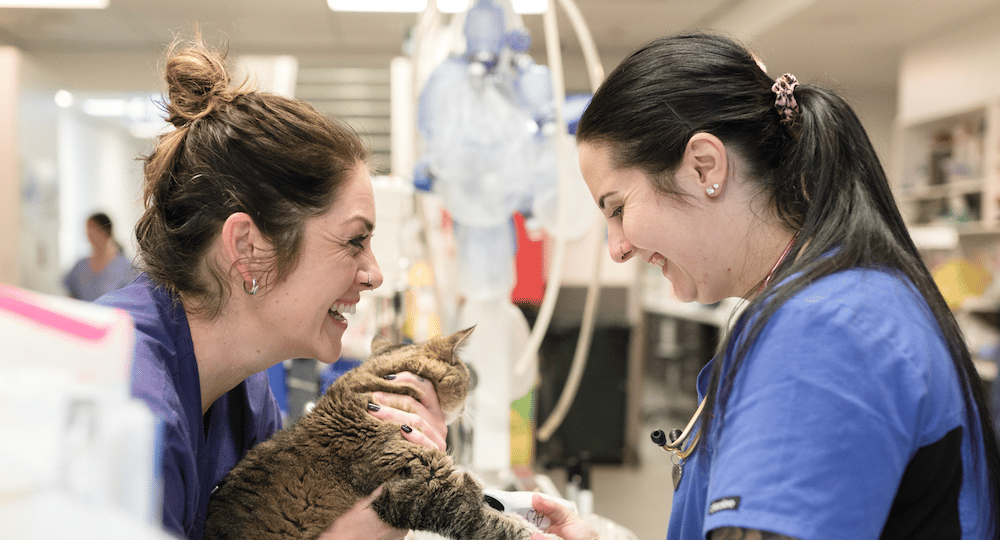
How Connections Can Lower Stress
We invite you to think about how you’re actually going to do that: foster your connections. Think about three people you trust: colleagues, family, or close friends. When was the last time you shared something with them? When did you open up to them? When did you even touch base with them? Having a lack of time is not an excuse, as we can always find the time for connections. Next, think to yourself, what are you going to do with these connections in the next four weeks? You could meet up in-person, engage with them virtually, or even just reach out via phone or maybe text.
Foster those relationships in whatever way you can. Reach out and share something about what’s going on – whether it’s social, personal, or professional. Discuss what’s going on on the outside, but what’s actually going on on the inside? Because we all know that veterinary professionals are skilled in being able to mask what the outside looks like compared to what the inner person is is experiencing. Make sure you connect your inner person to someone who you genuinely trust in your life. Doing so will help your stress drastically.
We’ve spoken a lot about stress as a veterinary professional, but these tips are all just one piece of the puzzle. We all have a responsibility to empower our own wellbeing and the wellbeing of our colleagues within the veterinary profession. To find out more about veterinary wellness, be sure to explore our articles on Imposter Syndrome in the Veterinary Industry and How to Recognise the Difference Between Failing vs. Falling.
This article has been adapted from a presentation by Rhonda Andrews for THRIVE 2021, a virtual conference created to empower and coach veterinary professionals. Rhonda Andrews has been a psychologist with more than 20 years experience and founded The Barrington Centre in 1995 to provide a service that she felt was lacking in the marketplace – a centre of psychological excellence which provides integrated people solutions and has been working closely with the veterinary industry. You can hear Rhonda’s presentation in-full by signing up to the THRIVE 2021 Virtual Conference.


